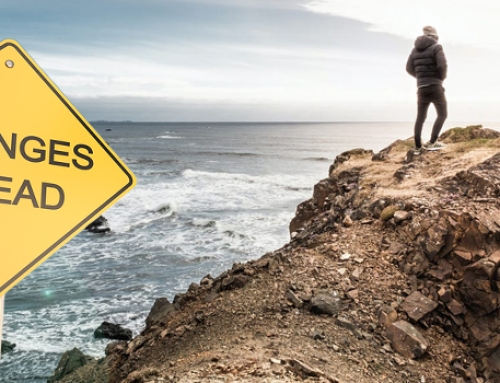This Whole Series of Getting Well
So the last of this series, when it comes to your own situation, we can give you every suggestion possible, but if it doesn’t line up to what you are in need of or those who are around you, it will give you no use at all. In the likely case of a general catastrophic situation, one of the first problems you will face is the lack of supplies. Expect that in the first few days when anarchy reigns, that the shelves of the drugstores, pharmacies and big box stores will be bare… unless you are one of them who dare to loot. Double that with the lack of transportation in the case of earthquakes, tornados, and hurricanes, the mob panic will definitely not help in getting new supplies. Hospitals if they are open at all, will be full and doctors who won’t be able to deal with all those who need help – especially when it comes to meds!
Because of all the anticipated obstacles and roadblocks it is wise to be able to buy larger quantities of over the counter drugs that you now require. It is advisable to rotate the supply, as you stockpile. Do it now while it is easy to do as well as take for granted. These events have a habit of happening when you least expect it, and then suddenly something as basic as Dayquil could be worth more than its weight in gold.
We recommend that you do your duly best in getting into your storage pile the natural remedies that are now available OTC. Learn what herbs can be used and combined for the desired results that your body needs to function. Start and practice the making, using and replenishing the stores of what you have found now. Better to do it, again, while the getting is easy to do.
Prescription drugs are another matter. Often those of you who have gone the Big Pharma route would be ill-advised to go cold turkey on most of what you have been prescribed. These will be actual lifesavers, drawing the line between life and death. You are going to have to make plans before the mess starts, to how you are going to get access to these. Often you can find, generic or animal oriented forms of the medications you are needing to function, as well as survive.
The prospect of running out of insulin if you’re a type I diabetic is not what you want. Nor is it the case with psychotropic drugs. There are some nasty withdrawals when you cannot take them, and in the case of a type I diabetic, life threatening.
Analyze what you use that you are now in need of, and make plans accordingly. Again, for many on this list that is designed to stir one’s thinking processes, there are natural herbal remedies that can be had in lieu of what is now mass produced. The average household, uses the following substances below on the list.
Over The Counter Drugs
- Ibuprofen. This is the active compound of drugs like Motrin or Advil. Combined with acetaminophen it’s effectiveness increases as a painkiller, making it comparable to codeine or tramadol.
- Acetaminophen. This is known as Tylenol and it’s the only pain-reliever that is not an anti-inflammatory drug.
- Acetylsalicylic acid. This is commonly known as Aspirin. It’s better to avoid it if you have a stomach condition.
- Bacitracin ointment. This is a cream that contains a small dose of a highly effective antibiotic, you may know it as Neosporin.
- Calcium carbonite. Also known as tums if you suffer from indigestion at all.
- Loperamide. Commonly known as Imodium, this is the most effective over the counter drug against diarrhea.
- Ranitidine. This is more widely known as Zantac another antacid that is used in treating ulcer and gastritis as well as simple heartburn.
- Cetrizine. Known as Zyrtec, this is a little bit stronger antiallergic, which should NOT be used if you are allergic to Hydroxyzine.
- Loratadine. You will find this in stores under the names of Claritin or Alavert. It’s an antiallergic drug that can be used in treating mild allergies.
- Diphenhydramine. It’s the active compound in Benadryl, most commonly used antihistaminic because it is very effective for hives.
- Epipens. If you or your kids are known to be prone to allergic reactons, an Epipen is an essential tool. This is a dose of adrenaline which will help in the case of an anaphylactic reaction.
- Skin antiseptics. Again there are many natural remedies for this purpose. Antiseptics are important in a scenario where getting wounds is more likely. The most common and effective antiseptics are ethyl alcohol (70%), isopropyl alcohol (70%), clorhexidine (it is also effective in treating severe wounds), crystal violet and gentian violet (for wounds and burns), Potassium permanganate(can be used as wound cleanser but also for gargles, mouthwashes and irrigations), hydrogen peroxide (6%).
- Multivitamins and Supplements. Usually, a healthy balanced diet would be preferable, but there is no guarantee of that happening when you are worrying about clean water, let alone a balanced meal., Any vitamins or minerals that you are usually deficient in is something you need to stockpile and have a supply of. That also includes any other supplements you may now be taking and will not be available in an emergency.
- Activated charcoal tablets. They are usually used in an incredibly large number of situations, from absorbing intestinal gas to reducing cholesterol, but it’s very very important that you have this in your emergency kit as an emergency medicine in intoxications. It can trap toxins and stop their absorption in the organism. This is a preventative measure when food borne illnesses are most prevalent.
As a reminder, this is only a list to get those brainstorming juices going. These OTC supplies should ensure the comfort of your family as they are going through hardships. You should have them in adequate quantities so they would last for at least 6 months, but if you do have the resources, it would be better to store them in higher amounts, as they might also be used for trade.
Your Prescription Drugs
There are a lot of prescription drugs that make our life better, or even sustain our lives. I am not a fan of Big Pharma, however, there are some medications that are a must to raise the quality of your life, specifically formulated for that purpose. In a disaster scenario, the most important are the ones you need. And probably won’t be available soon after the crap hits the fan. Take stock on what you need and seek out the sources that you can get larger quantities. Be mindful on the shelf-life of efficacy of each one as well.
There are companies out there in the marketplace right now that can assist you in this. Search them out and get researching them. Nothing worse when you run out of the epileptic medicine your child needs, or the blood thinner your spouse needs to keep from stroking out. Take action on this today!
Other more generic-use medications that are prescription only presently is antibiotics. Consider also strong painkillers could also prove useful, however these are controlled substances and there’s no way a doctor would agree to prescribe something like that unless you truly need it.
We have in the previous articles of this Getting Well Series have detailed quite extensively the types of antibiotics that you can get. Antibiotics are meant to be used ONLY if truly necessary, and in the event of a disaster it becomes even more important to preserve the stocks as much as possible and keep them for true emergency.
So, what are the best antibiotics to stock?
- Amoxicillin. This is a wide spectrum antibiotic that can be used in adults and children as well. It is also safe during pregancy and breastfeeding. It has few side effects which are almost always mild, however it may cause allergic reactions.
- Ampicillin. It is also a wide spectrum antibiotic that works for all the above mentioned categories. It works for respiratory tract infections, anthrax, UTIs, gastrointestinal infections and it is less lilely to cause severe allergies.
- Sulfamethoxazole and Trimpethoprim are used in combination to treat most UTIs. They can also cure respiratory tract infections, but usually they are kept as an emergency situation for infections with the resistant strains of Staphylococcus aureus, which is easily spread.
- Ciprofloxacin. It also works great for UTIs, pneumonia and digestive tract infections, but it must never be used in children, pregnant or breastfeeding mothers.
- Metronidazole. This is especially efficient on anaerobe bacteria. It is most commonly used in combination with ciprofloxacin to treat diverticulitis, bone infections, lung abcesses. It must not be used in children, during pregnancy or breastfeeding.
- Erythromycin. This is efficient in respiratory infections, syphilis, Lyme and chlamydia, it is safe to use in children, but it has pretty frequent side effects, mainly nausea and diarrhea.
- Doxycycline. It mainly has the same indications as erythromycin and is also effective against typhus and malaria. However it is not inded for childen use and preganant women should also stay away from it.
- Azythromycin is one of the most powerful antibiotics available in drugstores. It treats a very wide range of disease, but it’s more expensive than the ones mentioned before and it might be a little harder to get a prescription for it, since doctors tend to keep it as a last resort treatment.
How to store antibiotics and other prescription meds?
Usually, antibiotics can be safely used up to 5 years after the expiration date, as long as they are stored in proper conditions: away from heat, in dark dry spaces, avoiding freezing. However, it is very important to check on the expiration date for tetracyclines (erithromycin and doxycycline) because in time, they can become toxic. This also goes for any of the other prescription medications you have. And if they are abuse or addiction producing substances you are going to need to keep them under lock and key and as secret as you can possibly make it!
Special considerations for medication for chronic conditions
People around you may have chronic conditions that forces them to take their treatment daily, or several times a day, for the rest of their lives. It is doubly important to make accommodations for them. Your doctor will most probably agree to help you make a stock for 3 months (a 6 months stock would be even better). Be careful, as you get your monthly prescriptions, to rotate the pills in your stock, to make sure that you use older ones before their expiration date.
Overall TakeAway
We are here to be able to get you the information you need to know to be the most self reliant as you can be in any given situation you may find yourself in. And the series of Getting Well, has a sheeshload of info that you can use and put into practice immediately. Don’t hesitate, it will only serve to fill you with regret if you do, when you are looking at your loved one suffer because you failed to take the steps in the past to help them when they most need it.






